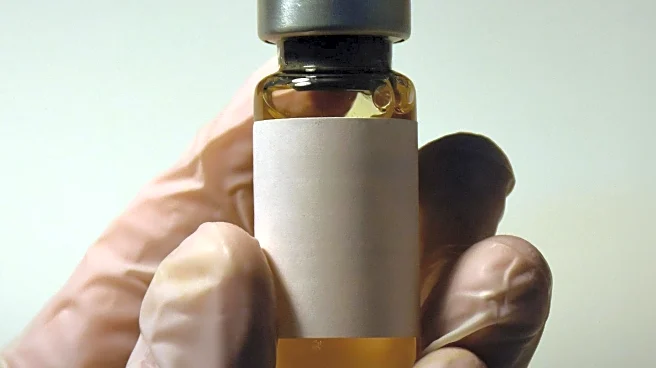What's Happening?
Recent research published in Nature has uncovered that glycosaminoglycan-mediated uptake of lipoproteins, specifically high-density lipoprotein (HDL), protects cancer cells from ferroptosis by delivering α-tocopherol, a form of vitamin E. This discovery highlights potential therapeutic strategies to target GAG-dependent lipid uptake or modulate dietary vitamin E to enhance ferroptosis-based cancer treatments. The study conducted by Calhoon et al. involved a CRISPR screen targeting metabolism-related genes in HeLa cells, revealing that glutathione peroxidase 4 (GPX4) is essential in lipoprotein-depleted environments. Supplementation with HDL restored the viability of GPX4-deficient cells, indicating HDL's protective role against ferroptosis. The research further identified α-tocopherol as the key component responsible for HDL's anti-ferroptotic activity, suggesting that dietary vitamin E promotes tumor growth by protecting cells from ferroptotic stress.
Why It's Important?
The findings have significant implications for cancer treatment strategies, particularly in enhancing ferroptosis-based therapies. By understanding the role of HDL-delivered vitamin E in protecting cancer cells, researchers can explore new avenues for therapeutic interventions that disrupt this protective mechanism. This could lead to more effective treatments for lipid-rich malignancies such as clear cell renal cell carcinomas, which exhibit elevated levels of chondroitin sulfate and increased lipoprotein-derived α-tocopherol. The study suggests that targeting glycosaminoglycan biosynthesis could impair tumor growth by increasing susceptibility to ferroptosis, offering a promising approach to cancer therapy.
What's Next?
Future research may focus on developing drugs that inhibit glycosaminoglycan-mediated lipoprotein uptake, thereby enhancing the effectiveness of ferroptosis-based cancer treatments. Additionally, clinical trials could be conducted to evaluate the impact of dietary vitamin E restriction on tumor growth and ferroptosis sensitivity. Researchers may also investigate the precise mechanisms of GAG-dependent lipoprotein uptake to identify potential molecular targets for therapeutic intervention.
Beyond the Headlines
The study raises ethical considerations regarding dietary recommendations for cancer patients, particularly concerning vitamin E intake. While vitamin E is generally considered beneficial for health, its role in protecting cancer cells from ferroptosis suggests that dietary guidelines may need to be reevaluated for individuals with certain types of cancer. Furthermore, the research highlights the complex interplay between diet, metabolism, and cancer progression, underscoring the need for personalized nutrition strategies in cancer treatment.












